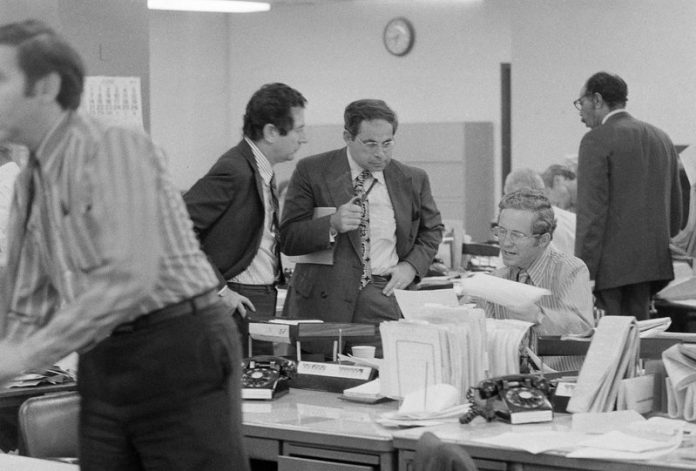
WASHINGTON (AP) — Fred P. Graham, who covered the Supreme Court and momentous legal affairs of his era for The New York Times, CBS News and Court TV, has died at his Washington home. He was 88.
The cause of his death Saturday was complications from Parkinson’s disease, according to his wife, Skila Harris.
Graham was the first lawyer hired by the Times to cover the Supreme Court and was a founding anchor of Court TV, a pioneering position made possible by the opening of criminal trials to TV coverage from inside the courtroom in the early 1990s.
Known for his soothing Southern drawl, Graham studied at Yale, Vanderbilt and Oxford universities and practiced law and worked in federal government jobs before the Times hired him to cover the high court in 1965. He moved to CBS News in 1972 as the Watergate scandal was heating up.
During his time at CBS and Court TV, he led efforts to get TV cameras into courtrooms. He was a co-founder of the Reporters Committee for Freedom of the Press, an organization created to protect journalists’ First Amendment rights.
“Graham was instrumental in creating the organization that we are today,” said the committee’s chairman, Stephen J. Adler, and in “ensuring that legal reporters have the legal support they need.”
Graham, the son of a Presbyterian preacher, attended a small elementary school in Texarkana, Arkansas; high school in Nashville, Tennessee; and Yale on a scholarship. After several years in the Marine Corps, in Japan and Korea, he earned a law degree at Vanderbilt while working as a reporter at The Tennessean.
Graham attended Oxford University as a Fulbright scholar. Then he returned to Nashville and worked as a lawyer before Sen. Estes Kefauver brought him to Washington to work as chief counsel of a Senate subcommittee. Graham later served as an aide to Labor Secretary W. Willard Wirtz.
The New York Times was looking for a replacement for its Supreme Court reporter and chose Graham, launching his long career in legal journalism. After moving to CBS News in 1972, Graham worked there until 1987, when the network was cutting staff and did not renew his contract. He returned to Nashville to work at a local television station. But his absence from national news didn’t last long.
When a cable startup known as Court TV was looking for anchors to start its legal coverage, Graham was one of the first hired for the network, which provided extensive coverage of all types of court cases, including business disputes and the O.J. Simpson murder trial.
Graham’s extensive coverage of the courts helped give him the background later to write four books, including a memoir, and numerous articles on legal topics for magazines and newspapers around the country.
Graham won a Peabody Award, for his coverage of the Watergate scandal, and three Emmy awards.




